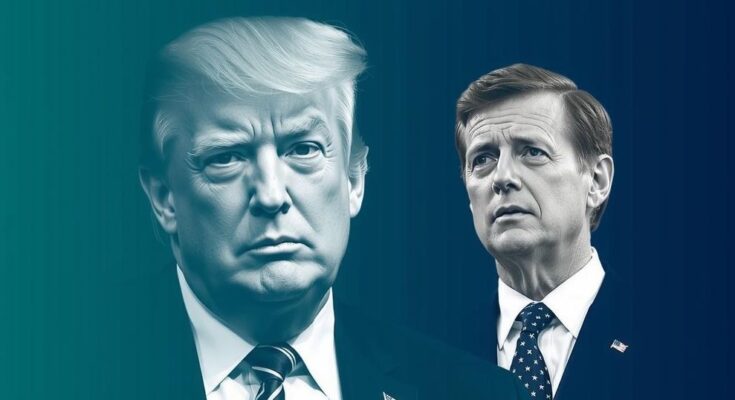Pharmaceutical stocks are dropping sharply following Trump’s nomination of Robert F. Kennedy Jr. to lead the Department of Health and Human Services. Known for his anti-vaccine views, RFK Jr.’s position raises concerns about public health policies and has led to significant sell-offs among major pharmaceutical companies, fueling investor anxiety and triggering a debate about the future of health management in the U.S.
In a surprising turn of events, pharmaceutical stocks are experiencing a sell-off following Donald Trump’s nomination of Robert F. Kennedy Jr. to lead the US Department of Health and Human Services (HHS). Known for his anti-vaccine stance and promotion of health conspiracy theories, RFK Jr. has made claims linking vaccines to autism and promoting the idea of banning certain additives in food. The stock market reacted swiftly, witnessing significant drops, particularly among major players like Moderna, BioNTech, AstraZeneca, and GSK, which saw shares plummet shortly after the announcement, instilling panic among investors and shaking confidence in the pharmaceutical industry. The investor outrage reflects a broader concern about public health policies under RFK Jr’s potential leadership, with critics fearing that his views could destabilize the current health infrastructure. As Trump heralded the health department’s goal to protect the public from harmful substances, skeptics argue that RFK Jr’s history undermines these very principles, prompting a fierce backlash, highlighting the delicate balance between political positions and public health imperative. The turmoil within the markets signals significant unrest as the pharmaceutical sector grapples with the consequences of this high-profile appointment. This climate of apprehension is rooted in RFK Jr’s long history of supporting conspiracy theories. He founded the non-profit Children’s Health Defense and gained notoriety for his claims against vaccines. In a climate already sensitive to health matters, particularly post-COVID-19, his views strike a dissonant chord, which informs the stock declines. Industry analysts indicate that the uncertainties introduced by RFK Jr’s nomination make predicting the market’s future movements painfully difficult. As RFK Jr’s nomination stirred controversy, many voices have risen in criticism. California Representative Robert Garcia encapsulated this sentiment succinctly when he described Kennedy as “a vaccine denier and a tinfoil hat conspiracy theorist,” suggesting such a nomination could jeopardize lives and damage the vaccine distribution system. This encapsulates the peril others fear; decisions at the helm of health policy could resonate far beyond the health department’s immediate reach. With RFK Jr. now suspended his presidential campaign after endorsing Trump, the health policy discourse evolves dramatically under this new leadership context. The prevailing atmosphere is one of tension as firms watch closely to see how these political decisions will unfold. The pharmaceutical sector has been resilient before, but this recent nomination could pose unprecedented challenges, raising questions about future directions in public health policy. In summary, Robert F. Kennedy Jr’s nomination to lead the HHS under Donald Trump is sending ripples through the pharmaceutical industry, with critical voices raising alarms about the implications of his leadership. As significant stock declines indicate investor distrust, the potential ramifications on public health policy loom large, demanding careful scrutiny as the narrative unfolds around this important appointment.
The backdrop of this situation is rooted in the contentious history surrounding vaccines and public health. Robert F. Kennedy Jr., a prominent figure in the anti-vaccine movement, has garnered attention for dissenting views on vaccines and their safety. Trump’s nomination of such a figure to lead the HHS raises red flags among investors and public health advocates alike. Vaccine efficacy, public trust in health departments, and market stability hinge on the authority’s stance on these critical health mechanisms. The overlaps between health policy and market performance make this situation particularly noteworthy as it unfolds amidst a politically charged public health landscape.
In conclusion, the nomination of RFK Jr. to head the HHS is a significant event with profound implications for both public health policy and the pharmaceutical market. Investor reactions illustrate deep-seated fears regarding where health policy may lean under his leadership. As various stakeholders grapple with the waves created by this political shake-up, the repercussions could dictate the future of health management in the U.S. amidst a continuing dialogue around vaccine efficacy and public trust.
Original Source: www.theguardian.com



